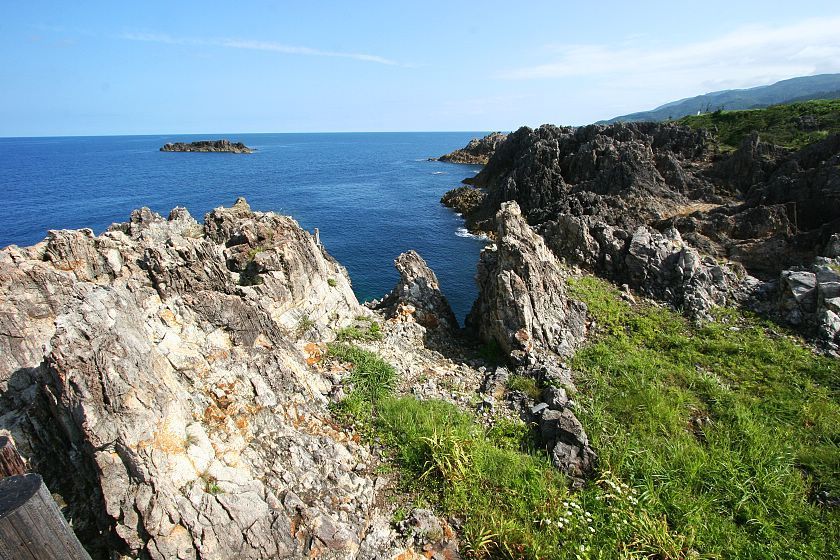Finding Basho

Known today as the greatest poet of the Edo Period, Matsuo Basho was also incredibly well travelled. His writings - typically haiku in a sparse rhythm of 5, 7, 5 syllables mixed with brief descriptions or anecdotes - form an elliptical but deeply immersive diary of his experiences on the road. While much of the landscape may have changed, here are five of my favourite of his haiku inspired by places you can visit today.
Such stillness / penetrating the very rock / a cicada's voice
Perched on a steep mountainside in what is today Yamagata Prefecture, a visit to Yamadera moved Basho to compose this verse despite a lack of precedent in poetry until that time. Today, visitors to the temple must make the same ascent up 1015 steps past Buddhist statues and striking rock formations enscribed with the names of the deceased.

It is with awe / that I beheld / fresh, green leaves / bright in the sun
Instantly communicating Basho's impression of the shrines and temples of Nikko, this simple verse combines a sense of beauty and religious awe with a play on the name Nikko, meaning sunlight. "To say more," he notes simply, "would be to diminish its holiness".

Summer grass / all that remains / of the warrior's dreams
Arriving in Hiraizumi and seeing the overgrown ruins of a castle of the extinct Fujiwara clan, he was overcome by a sense of pathos and the passage of time, and wrote this now famous verse.

The early summer rain / fall and fall yet / leave untouched the shining hall
Shortly after, he also stopped to visit Chusonji, which remains the most popular sightseeing spot. Its famous golden Konjikido Hall had previously been left open to the elements but when Basho arrived he was pleased to discover a protective outer building had been added. Amusingly, his travelling companion Sora would later add in his own diary that they had been unable to find anyone to open the door and in fact left without ever seeing it.

The billow-crested sea / falling on Sado beyond / the Milky Way
This verse describing a view of Sado Island from the coast is especially rich with hidden meaning. The remote island served as a place of exile, and seems to hint at Basho's feelings of loneliness on his long journey, while the Milky Way can be interpreted as a seasonal reference to the Tanabata Festival or the way we are connected by experience.






